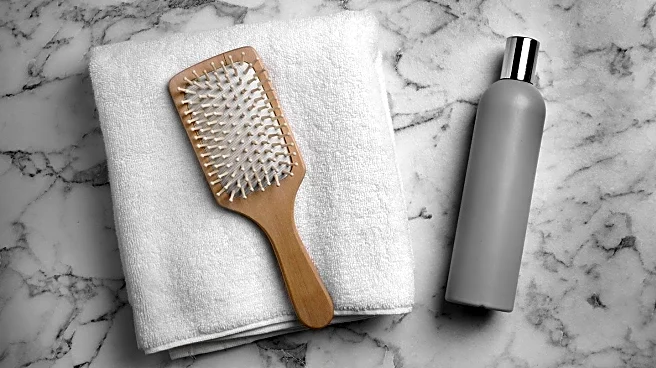What is the story about?
What's Happening?
Dermatologists have identified several factors contributing to oily hair, including hormonal changes and environmental conditions. Tracy Evans, MD, a board-certified dermatologist, explains that oil glands are sensitive to hormonal regulation, leading to variations in scalp oiliness across different life stages. Hormonal fluctuations during menstruation, pregnancy, and menopause, as well as stress-induced cortisol production, can increase scalp oiliness. Additionally, factors such as infrequent washing, heavy hair products, high humidity, and scalp conditions like seborrheic dermatitis contribute to the issue. Dermatologists recommend specific shampoos that address these concerns by removing oil and buildup while hydrating hair ends.
Why It's Important?
Understanding the causes of oily hair is crucial for effective management and treatment. Hormonal changes and environmental factors can significantly impact hair health, affecting individuals' self-esteem and daily grooming routines. By identifying the underlying causes, dermatologists can recommend targeted treatments, improving hair care practices and product choices. This knowledge empowers consumers to make informed decisions, potentially reducing the prevalence of oily hair and associated scalp conditions. The insights provided by dermatologists also highlight the importance of personalized hair care solutions tailored to individual needs.
















